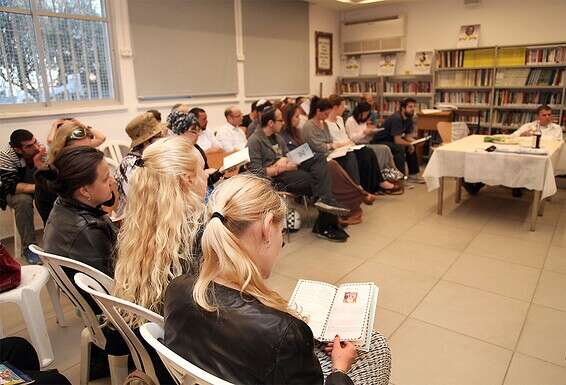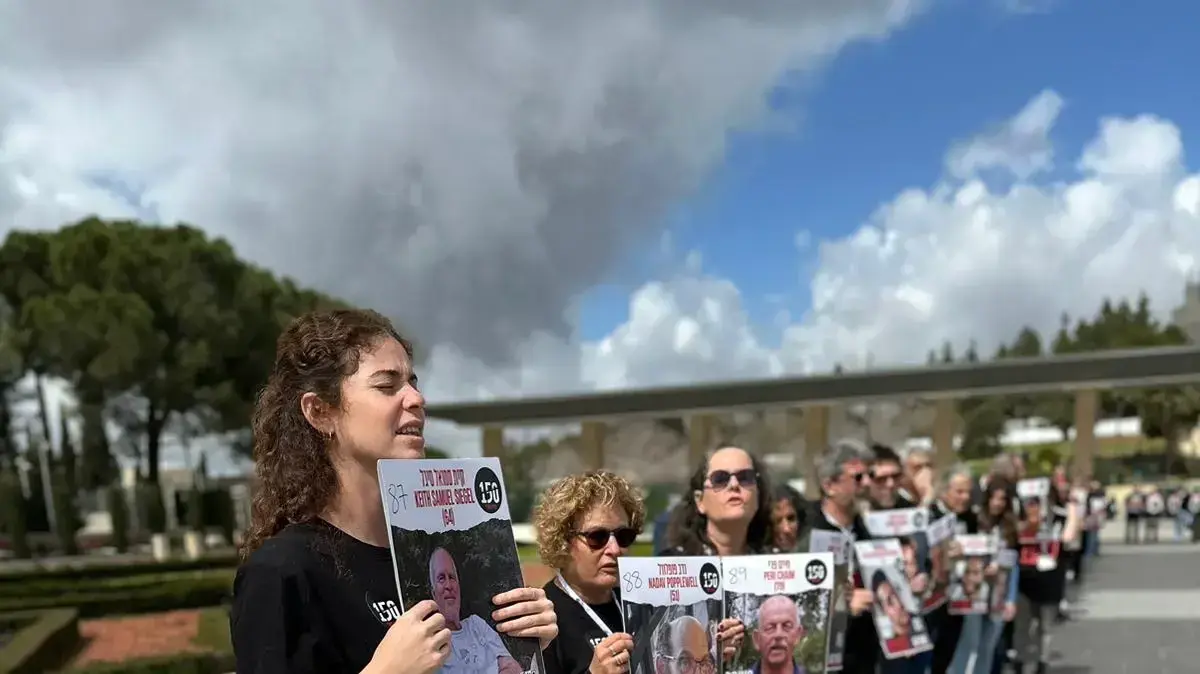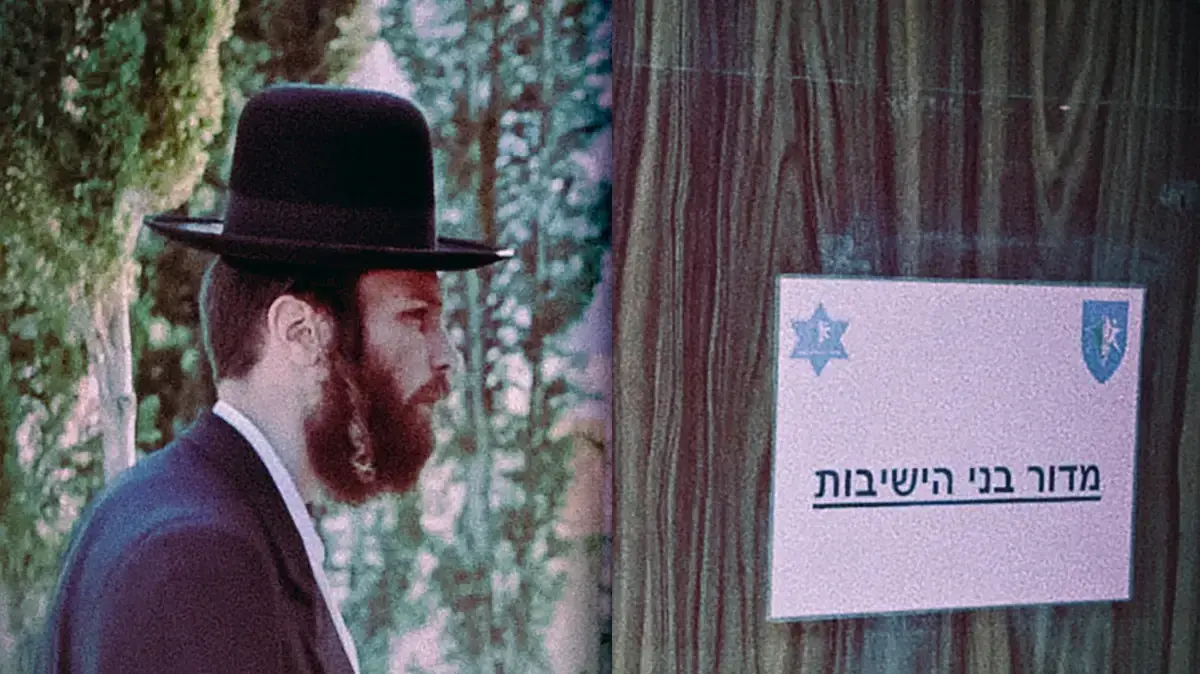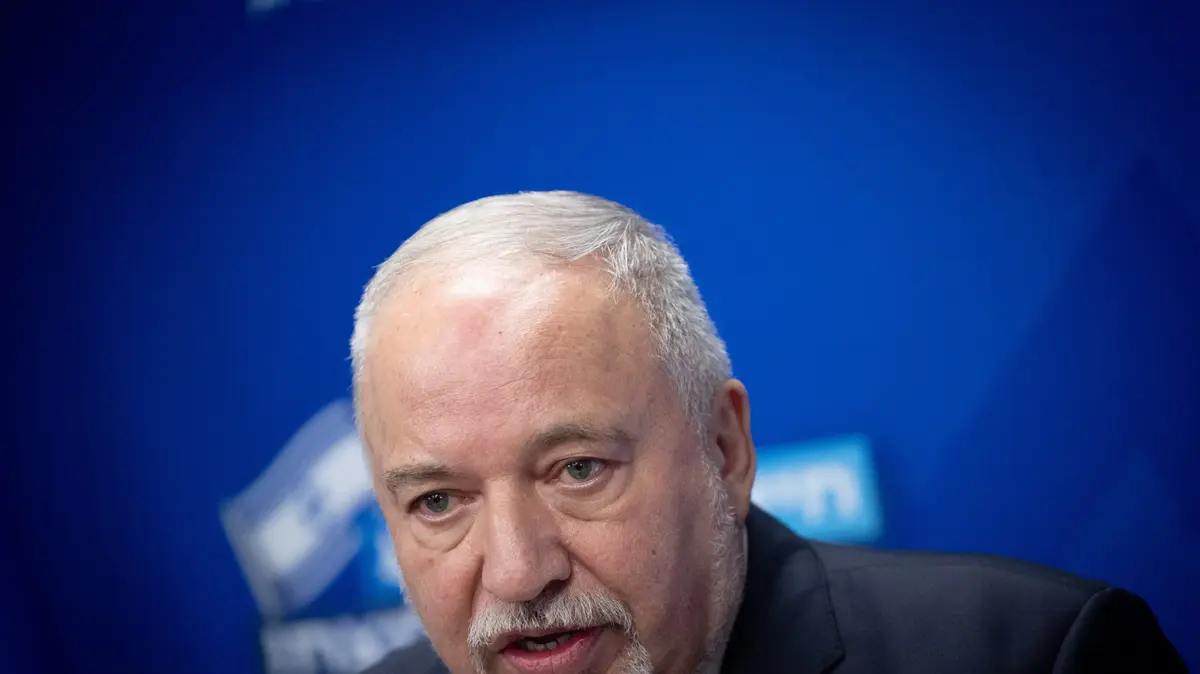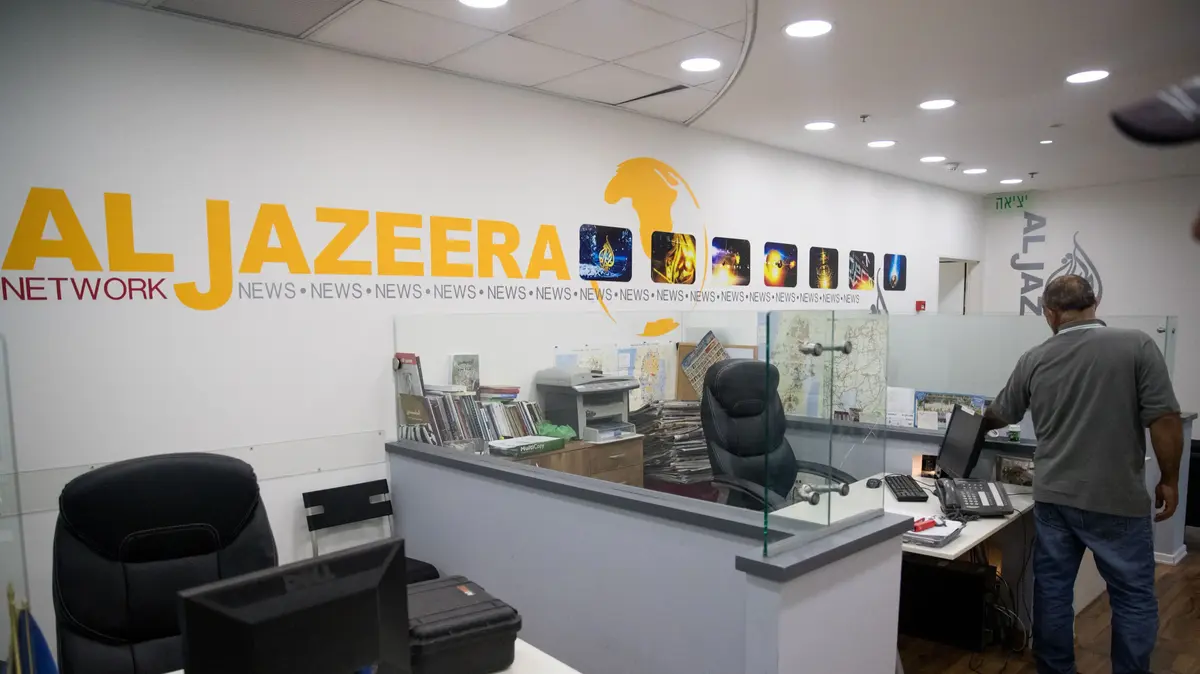The High Court, which this week recognized reform and conservative conversions made in Israel regarding the Law of Return, limited its ruling to questions of identity and civic affiliation.
Pashkvils against IDF conversions in an ultra-Orthodox neighborhood in Jerusalem
Photo:
News 24
It is worth reassuring: the High Court ruling on the conversion this week is important, but less dramatic than it seems at first glance. Nine High Court judges headed by President Esther Hayut have limited themselves to questions of identity and civic affiliation.
They still refrain from replacing the rabbinical establishment with matters of conversion and halakhah.
Anyone who reads the 37 pages of the resolution carefully will learn that the ruling that overturned the Orthodox establishment and the ultra-Orthodox parties this week is relevant only to the matter of the Law of Return, but not to the halakhic and religious validity of the Reform and Conservative conversions.
The decision in the petitions, after 15 years of deliberation, "is limited to the question of granting status under the Law of Return," Supreme Court President Esther Hayut explicitly emphasizes in her ruling.
Hayut also clarifies that "this is a civic-public question, and not a religious question."
The practical meaning of this is that anyone who has undergone a Reform or Conservative conversion in Israel will, like any other Jew, be able to obtain Israeli citizenship.
On the other hand, he will not be able, on the basis of this conversion, or on the basis of a High Court ruling from this week, to marry as a Jew through the rabbinate, which will probably continue not to recognize his Judaism.
The precedent is also too much language for the High Court ruling from this week. The High Court has previously ordered the state to recognize - for the purposes of the Law of Return - Reform and Conservative conversions made abroad. Now it applies the same ruling to Reform and Conservative conversions made in Israel. Court has already recognized several years ago conversions individuals orthodox (even the courts ultra-orthodox), made in the country outside the Chief Rabbinate. now he also recognizes conversions individuals Reform and Conservative, made the country outside the Chief Rabbinate.
it seems that it is precisely the dissenting judge, Noam Solberg, Who adopted the majority decision but sought to give the government another extension, precisely in describing the strange status of the Reform and Conservative converts in Israel, for whom this week's High Court ruling only set rivets: "split status";
"'Jew', half, third and fourth."
"In the population registry," Solberg describes the existing reality, "anyone who converts as a Jew can register. He will also be recognized as a Jew in the Law of Return; but he will not be able to marry or divorce as a Jew. On the civil level - a Jew will be called; on the religious level - he will remain outside the camp. Mabuka and Bulka. "
Who will the ruling actually affect?
Mainly on the petitioners and their number.
There are several dozen to a few hundred in Israel.
The petition clarified the case of only 12, such as Anik de Zoter, or Andrea Federmutz, who came to Israel from various parts of the world and underwent a conversion process in a traditional (Conservative) or Reform community.
The Minister of the Interior rejected their application for Israeli citizenship under the Law of Return.
Now the High Court has changed that.
Does the High Court ruling contribute to solving the broad problem of conversions?
No.
The most difficult problem today, which the High Court is not required to address in this case, is the huge number of non-Jews living in Israel. There are 700,000 such people, according to researcher Dr. Nathaniel Fischer, an expert in conversion and immigration to Israel.
Half a million of them and their children born in Israel are immigrants under the Law of Return, and another 200,000 are migrant workers, illegal tourists and infiltrators.
Fisher has previously suggested "not to build on mass conversion," or, alternatively, to understand differently the term "living," as it is meant in the Book of Deuteronomy, which defines the children of Israel as living, but in the sense of "foreigners."
"It is time to refresh the concept of biblical conversion," says Fischer, "to recognize that hundreds of thousands of non-Jews live among us; to take care of them even if they do not convert to religious conversion, and at the same time stop the enormous influx of non-Jewish aliyah."
As is well known, this current is fueled by the Knesset's determination that not only those born to a Jewish mother or a convert are entitled to immigrate to Israel under the Law of Return - but also their spouses, children, grandchildren, parents and grandparents.
The High Court does not address these hundreds of thousands, although Judge Solberg hints at them.
In his ruling this week, Solberg quotes things he and former Supreme Court Vice President Justice Eliakim Rubinstein wrote many years ago, while Rubinstein served as Attorney General and Solberg. The two remarked even then that "the sharp internal conflict in the Jewish people has inadvertently turned the caregiver into the principal and the principal the caregiver."
In fact, on the issue of conversion in Israel at this time - not a struggle between the streams is the main thing.
The main problem is the difficult problem of those many tens of thousands of immigrants from the former Soviet Union, who immigrated to Israel under the Law of Return, but are not Jews according to Jewish law and are therefore prevented from fully integrating into Israeli society. "
Does the High Court suffer from over-intervention here and forget its role?
Depends on who is asking. The High Court ruling is actually full of many expressions from the mouths of the nine judges, who ostensibly teach how much they wanted to avoid a binding ruling on the subject;
To what extent would they prefer the government to decide in their place.
The decision, according to the judges, given the Supreme Court only after the saga was 15 years of evasions and repeated delays by the State in the matter. They are also victims of the discussions and recommendations on this issue of committee members loyal and miracles, the Haredim rejected.
"Can not wait indefinitely "In vain and to avoid a decision, only because of an abstract possibility that some legislation will take shape - a possibility whose very implementation is highly questionable," explains President Hayut. "The decision in these petitions was repeatedly rejected in the hope that this sensitive and complex issue will be resolved outside the court. .. but once it is clarified that the chances of an agreed settlement of the issue are nil ... there is no escape from giving a verdict. "
Hayut's colleague, Justice Yitzhak Amit, also explains that" as with other sensitive issues, so in the petitions before us, some prefer not to make a decision. It is up to this court to get the chestnuts out of the fire. "Judge Solberg perhaps outlines what is expected later on in the legislative level, after the ruling:" Year after year, we court judges wait, petitioners wait, many expect the public to hear the legislature.
The issue is important nationally, socially, religiously, humanely, it is important to the entire public, fateful for many of its individuals.
The issue of conversion does not deserve 'judicial legislation' patch upon patch, but rather clear and orderly primary legislation in the Knesset of Israel. '
"The laws of the High Court in this matter," Judge Solberg misleads, "would not have come into being without the emptiness and inaction of the legislature.
The zero action in the Knesset led to increased activity in the court, due to the need to extend relief to the petitioners, and in the absence of a law there is 'judicial legislation'. "
Solberg, by the way, adopted Judge Hayut's ruling, although from the beginning he believed the conversion issue should be handed over. - In the hands of the Chief Rabbinate, as it was in the distant past. "I have no power to breathe life into this view," he explains, "in court it has lost its power, although in the legislature it has not yet been forgiven."
Will the Knesset and politicians now turn to legislation that will return to the Chief Rabbinate the powers regarding conversion, also with regard to the Law of Return?
Part of the heated debate this week has been influenced by the fact that we are at the height of an election campaign.
The flooding of the issue now helps the ultra-Orthodox parties on the one hand and Yisrael Beiteinu, there is a future, Meretz and Labor on the other.
For them, the High Court ruling at the present time is a gift and a means of stimulating the electorate. Shas and Torah Judaism are, therefore, returning to the "overcoming ruling."
They promise that without it there will be no partners after the election for any government.
On the other hand, a former MK on behalf of Shas, Rabbi Chaim Amsalem, now chairman of the Am Shalem movement, clarifies that "the inscription has been written on the wall for 15 years." He said, "All attempts to find a way out according to Torah and Halacha have been rejected. Again and again rudely by politicians and activists.
The Israeli governments, which are held captive by the extremists, have been left unanswered by the painful problem. "
Amsalem accuses the" extremists "of closing their ears and leading the High Court to rule on the matter.
"The aggravation of conversions," he claims, "caused the encouragement of assimilation and the loss of hundreds of thousands of the seed of Israel."
The Chief Rabbi of Israel, Rabbi David Lau, is also pouring boiling water on the judges' decision.
"Those who converted to Judaism in a Reform conversion and the like are not Jews," he states, "no decision of this or that High Court will change this fact.
I regret that the court in its decision actually approves the flooding of the State of Israel with immigrants who have nothing to do with Judaism. "Rabbi Lau sees the High Court ruling as a slippery slope:" Every citizen of Israel must ask himself in the wake of this ruling. When can any foreigner become a citizen of the State of Israel? "
MK Meir Porush of Torah Judaism formulates in his way the bottom line of the High Court ruling: "These 'immigrants' will at most be 'Jews of the High Court'.
"The law limiting the power of the High Court will be our condition for entering a future government," he clarifies.
On the other hand, Rabbi Dr. Daniel Hartman, president of the Hartman Institute, sees the importance of the High Court judges' ruling in that it "applies to his understanding of the Human Dignity and Liberty Law also on matters of religion and state, which they often refrain from doing, often due to the political consequences of This action. "
Hartman aspires that "the next step in fulfilling the dream of the State of Israel as the national home of the Jewish people - and not as a private synagogue of a particular stream - will be the creation of many authorities with many rabbinates, not only in conversion but also in family."
Hartman clarifies that "there are citizens in the State of Israel who cannot marry according to their conscience. The argument made in Ben-Gurion's historical status quo letter to Agudat Israel was that it should be recognized that lack of unity in marriage and conversion will lead to separation among the Jewish people. But in practice, that is not what is happening. The halakhic framework has found ways to ensure that every Jew can marry a Jew.
"Moreover, restricting the religious freedom of the citizens of the State of Israel, arguing that only under the Orthodox umbrella there will be unity, is not only halakhically incorrect. Morally incorrect.
It is not possible for everyone to marry according to the Orthodox, just so that the Orthodox can marry everyone. "
Meretz chairman MK Nitzan Horowitz said this week that the High Court's decision" removed the monopoly on Judaism from the ultra-Orthodox parties. "
From now on, he said, "they are no longer the only ones holding the keys to entering Israel. This is an important step in dismantling the Orthodox monopoly."
Gilad Karib, number 4 on the 24th Knesset job list, who may be the first Reform rabbi to serve in the Knesset, believes the judges in their ruling "defended the fundamental values of the State of Israel as the state of the entire Jewish people and as a democratic state committed to freedom of religion and conscience."
Where is the High Court ruling leading us? It is
already clear that anyone who seeks the participation of the ultra-Orthodox parties in the next coalition, whether it is Netanyahu or Bennett and Saar, will be required to amend the law. The moment negotiations begin on this demand will also be the moment they resume Various compromise proposals that have been discussed in the past.
One of the outlines before the High Court ruling is considered by the ultra-Orthodox to be bad, and after the ruling may look better in their eyes, is the one drawn by the Nissim Committee. The committee, headed by Moshe Nissim, former Minister of Justice and son of Rabbi Yitzchak Nissim (Sephardi Chief Rabbi Prepared a bill for the establishment of a state conversion system for rabbis authorized by the Chief Rabbinate, which would also include city
rabbis
.
The chief rabbis previously rejected the outline. They wanted 100 percent control of the system. Now they may be content with less.
Another proposal, which may appear to the ultra-Orthodox Better than the High Court ruling, it is that of Rabbi David Satyu, chairman of the Tzohar Rabbinical Committee and Rabbi Shoham, to allow every rabbi in Israel to make conversions. Autumn believes that it is an ultra-Orthodox view of "all or nothing" that led to the High Court ruling. This week.
Autumn also refers to the outline of miracles that the ultra-Orthodox parties have rejected.
"They opposed orderly and broad legislation that would allow halakhic conversion, even if not the most ultra-Orthodox. It was this opposition that led to the High Court's decision on us.
Now maybe they will rethink, "he says.
During the political" Brotherhood "between Naftali Bennett and Yair Lapid (2013), the two agreed to allow Israeli city rabbis to engage in conversion, but when the ultra-Orthodox returned to government, two years later, that agreement died down. Some of the most prominent rabbis in religious Zionism, including Rabbis Satyu, Yaakov Madan, Ram HaCohen and Nahum Eliezer Rabinowitz (who has since passed away), founded "Gyor Kahalacha" - a network of courts supported by the Jewish Agency and the Jewish Federation of New York.
The High Court forced the Ministry of the Interior to recognize these conversions.
Another possibility, which may be heard again now, is the one that arose in the Gavison-Meidan Convention, to change the definition of "who is a Jew" from a halakhic definition to a national definition; Another proposal is that of Rabbi Chaim Amsalem to facilitate conversions and settle for a "traditional" level of observance. There is also an old proposal by Rabbi Yoel Ben Nun, to settle for baptizing all non-Jewish immigrants at sea and receiving faith through one verse: "Our God, the 'One'", which the ultra-Orthodox cannot assume will agree with.

